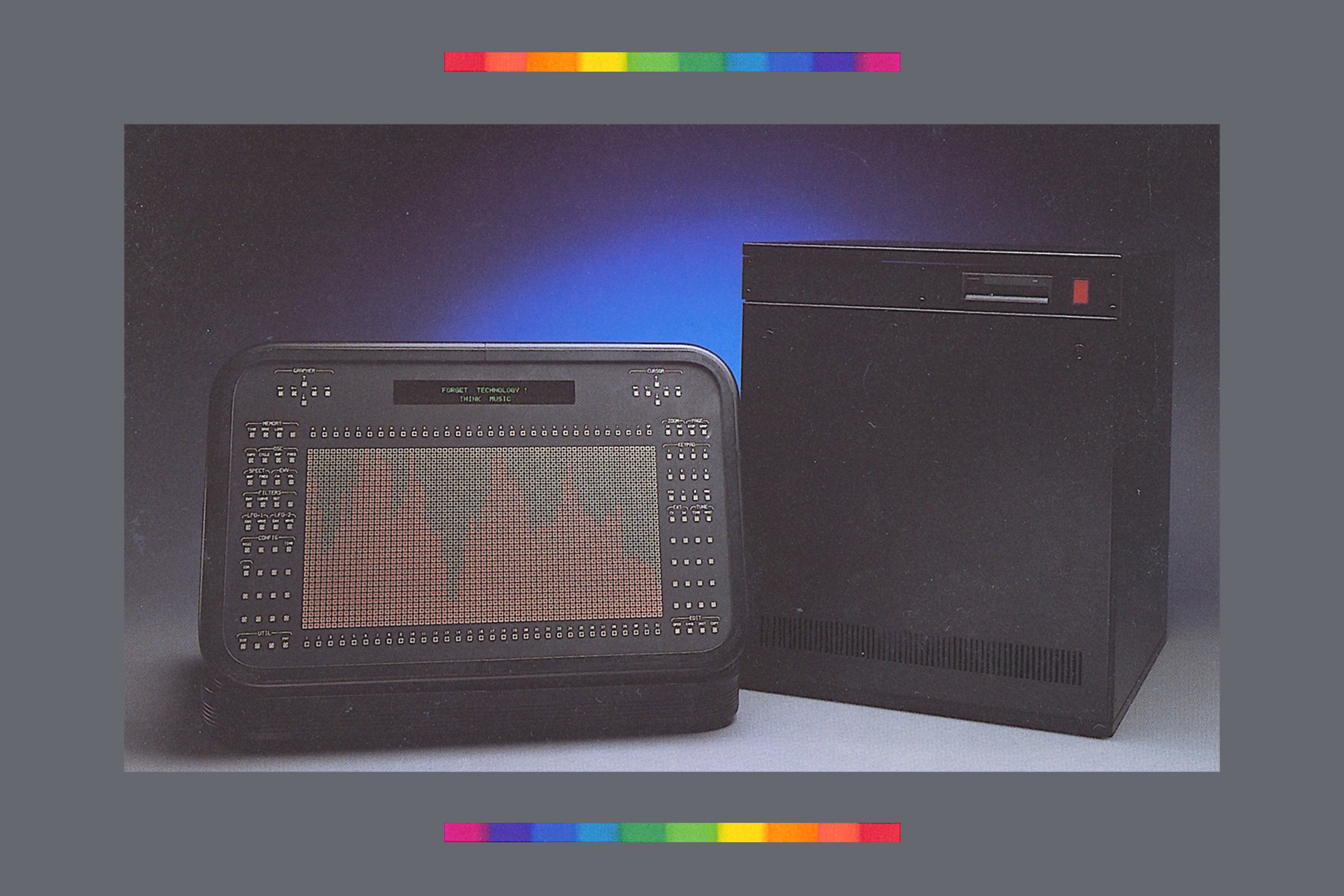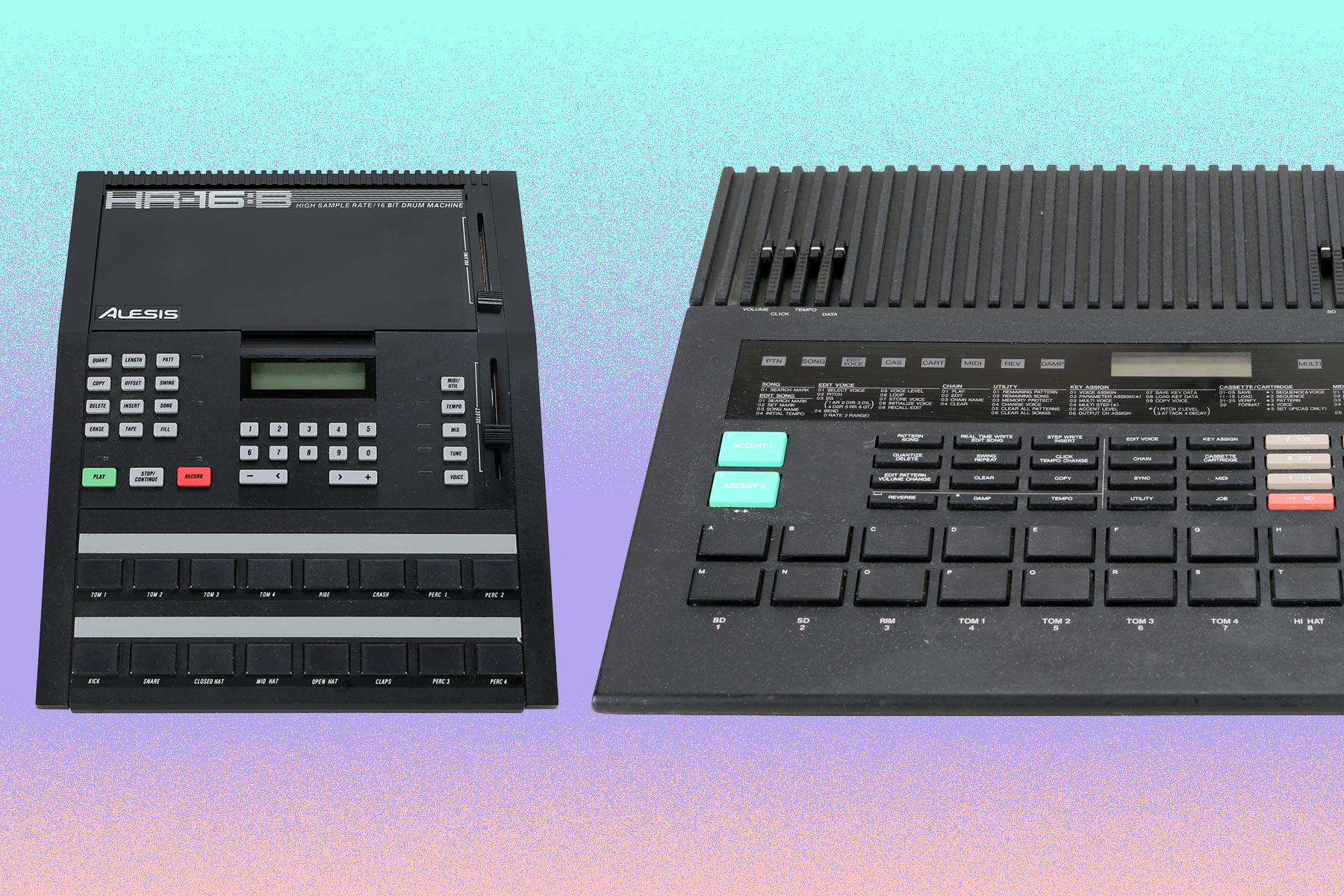Bandcamp Friday might be on hold until August, but there's no shortage of excellent music out there, and we always have artists that we want to highlight. Today, June 18th, 2021, Bandcamp is commemorating Juneteenth by donating 100% of their proceeds to the NAACP Legal Defense Fund, an organization with a long history of doing vital work towards racial justice and equity for people of color. Purchasing an album today will not only directly support the artist, but make a small step towards a better and more just world for all. To coincide with this fundraiser, this article shares a selection of music that we at Perfect Circuit have been particularly enjoying recently.
Devotions and Drones: Robert AA Lowe's Mishaps in Time
Mishaps in Time by Robert Aiki Aubrey Lowe comes fully packed with meditative textures that contrast with layers of rhythmic lines. The Brooklyn-based artist delivers with a collection of tracks that explore new sonic spaces with the careful eyes of a curator of sound art. The result both grabs your attention and allows for contemplation of its airy atmospheres. While many of his releases and live performances feature a combination of modular synthesizers and his voice captured and recirculated with the help of loopers, this album features none of his haunting ethereal vocals. The sonic footprint features a mix of organic and electronic modular synthesizer tones with plenty of depth and character. Lowe splits the album into two distinct sections, Mishaps in Time, a single long-form track, and Misshapen Measures, split into three distinct sections.

As with other Robert AA Lowe releases, the album comes with the Bandcamp tags, "Devotional" and "Not Devotional," contrasting these two feelings not usually at the forefront of genre descriptions. What does it mean to be devotional and not devotional at the same time? It seems to require a mix of thoughtfulness and conceptualization mixed with instinct and feeling that combine to create a gestural and dynamic music experience. The songs teeter at the edge of a precipice, not devolving into noise but invoke tension that something may be lurking and biding its time. Washes of textured drones contrast with stochastic percussive and rhythmic patterns that come in and out throughout the album.
As with many pandemic albums, there is deep reflection evident in the compositions. However, it does not date itself as a relic of the disaster that grips the world. It looks beyond constraints of past, present, and future to sit outside of bounds of time and space. Rhythms and textures, Mishaps and meditations, Time and space, the exploration of these concepts runs deep through this album.
Trading Drum Kits for Drum Machines: Gerald Cleaver's Signs and Hprizm's Signs Remixed
With Hprizm's new album Signs Remixed, we really get to talk about (at least) two notable albums at the same time. As a remix of Gerald Cleaver's Signs from 2020, it's worth first discussing that earlier release and the artist who produced it. Originally from Detroit and now based in New York, Gerald Cleaver is best known for his work as a drummer, performing and recording with an incredible variety of artists including Henry Threadgill, Muhal Richard Abrams, Craig Taborn, Brandon Lopez, and Fred Moten. Signs marked Cleaver's first foray into electronic music, in which drum machines and synthesizers jostle in an ecstatic, peculiar grace that clearly references Cleaver's background in extemporaneous expression as an improviser, as well as his home city's rich tradition of electronic dance music

Signs stands on its own as a surprising and inventive turn from Cleaver, and with Signs Remixed, the New York-based, beat-driven electronic music producer and performer Hprizm/High Priest of the Antipop Consortium adds incredible ambience to Cleaver's compositions. Casting all the detail of the originals into sharp relief through beautifully crushing compression and dynamic sculpting, Hprizm's arrangements allegorize alienation, doubt, and anguish. But there's also a kind of melancholic reverberation throughout the work that truly sends Cleaver's material into an outer realm, activating this music's revolutionary, transformative, and mind-expanding potential. In the spirit of remix, there's some meaningful recomposition, too—Hprizm's "AKA Radiator" makes oblique reference to Cleaver's "Radiator", but when an absolutely pulverizing kick drum enters the scene, it feels like we're firmly in Hprizm's territory.
Signs Remixed coincides with yet another new release from Cleaver called Griots, a continuation of the electronic explorations he initiated in 2020's Signs. These two releases are courtesy of Positive Elevation, a sub-label of 577 Records that takes its name from a line found in a GZA track called "Did Ya Say That", namely: “Positive elevation always correct errors". Each points toward new directions in experimental electronic music.
A Cyber Opera for the Modern Day: Pamela Z's A Secret Code
A Secret Code is the latest full length album from the masterly voice deconstructor and sound poet Pamela Z, and this being the artist's third solo release coming out a whole 17 years after the sophomore A Delay is Better (2004), it is truly an occasion worth celebrating. The central elements of Pamela Z's work have always been a clever and yet deeply emotional interplay of text, found sound, and digital signal processing tied together by human voice ranging in forms of expression from operatic bel canto to spoken word to extended techniques. And on a meta level, Pamela Z's work appears to challenge the perception of time in general—the narrative doesn't seem to ever be moving forward as it would in a traditional storytelling, but rather shifts back and forth, and to the sides, cycling and freezing occasionally thus emphasizing a certain feeling or an idea.

A Secret Code remains faithful to the musical language developed by the artist over the years. It is an engaging sonic narrative of cyber-operatic flavor that is full of beauty, wit, and subtle humor infusions. The album starts with a "Quatre Couches / Flare Stains", a composition coalescing chanting of numbers, vocal caterwauls, and drones which dissolve mid-way into a meditative tunefully sung poem enveloped in digital textures. Z's sense of humor really shines on the second piece "Unknown Person"—a playful anthem turning a spotlight on the mundaneness of the TSA routine. The artist builds up the piece by calmly and cheerfully singing out the typical questions asked by the airport security officials like "what is the purpose of your travel?" or "has your bag at any time been out of your immediate control?", and finishes it with layered recordings of people listing the contents of their luggage, drawing a unifying line between common human experience…after all we all forget to pack our socks once in a while. This focus of artists' attention to the prosaic aspects of life is in some way reminiscent of Anne James Chaton's poetic assemblage out of modern day's culture "low literature" bits [receipts, business cards, promotional posters, etc.].
"Typewriter" is another piece that is hard to pass by without a smile. Consisting only of the sounds of an old typewriter, and the artist's voice reading out loud a letter to an (assumingly) imaginary pen pal as it is being "typed" (the reason for quotation marks will be revealed shortly). In the letter Z explains that her computer is currently broken, and as such their future communication is expected to be scarce until the machine is repaired. While it is not apparent from listening alone, watching the performance of the piece unfolds another level of irony: the typewriter is not there, it is as much imaginary as the letter and the recipient. Using a wireless controller, the artist makes typing gestures in the air, which in turn trigger the sounds of now almost-extinct yet still familiar technology. Watching the piece the mind is immediately excited to draw a parallel with the famous scene at the club Silencio of David Lynch's Mullholland Dr., albeit in this case the confusion and eeriness of a dream state give way to wonder and reflection on our relationship with technology.
On "Timepiece Triptych: Syrinx" the artist synthesizes a natural environment that feels strangely odd. The sounds gradually morph one into another, creating a mildly disorienting feeling regarding their origin: human voices are softly replaced by bird calls which then transmute into digital chirps then back to human voices. The closer "Timepiece Triptych: De-Spangled" transports the listener beyond the confines of time and space with pulsing Ligeti-esque vocal swarms.
It is that sort of range, subtlety, and nuance that is present throughout Pamela Z's work. She sifts through the haystack of cultural artefacts, creating complex sonic structures by amplifying the quotidian, restructuring what is common, and putting the routine under a microscope. No matter which direction the artist takes, every turn on the record feels in perfect unity with the rest, and the work as a whole remains uniquely its own thing. As fellow composer Annea Lockwood puts it in liner notes: "Voice, the most intimate of instruments, is a shape-shifter in her [Pamela Z's] hands, transformed by gestural control and electronics in her performances and mutating, time-stretched and compressed as Timepiece Triptych, and throughout her work, with a dazzling compositional virtuosity."
All Hail the Tiny Man: Slugabed's we have the window open at night
Slugabed is an artist wearing many hats, the past decade has seen him starting a label, a band, and releasing a whole bunch of music, and of course, like five or six actual hats. His latest, we have the window open at night released early June is an absolutely stellar experience that combines the artist’s own brand of silliness and sound design mastery into a sublime LP.

Names aside, Slugabed (Greg Feldwick) is no slouch. we have the window open at night is filled with Slugabed’s characteristically playful approach to music, from the humorous names of the track listing to the familiar “bonk” sound effectively used as a snare on “the tiny man is here”, you may hear a saxophone abruptly cut through the mix for a rousing solo before fading and flitting into the background. There are tender moments of space, and tumultuous rhythms interjected that bounce about in an unhinged way but somehow always manage to cut a groove. Quite simply put, this music is both a heartfelt offering of fascinatingly rich and complex compositions and a goofy display of the artist’s personality.
The atmosphere of this collection of songs is soaked with a miasma of reverbs and saturation, crunchy digital aliasing stretching and squishing samples, white noise creeps up and down as new instruments and sounds poke through the mix, both familiar sounding and completely bizarre. Songs like “pale, arrogant moon” and “wake up, something’s afoot” utilize Slugabed’s hallmark choral sampling and his distinct beat-work that simultaneously sounds tight while also throwing off kilter percussion spinning through the mix.
Some tracks would feel uncomfortably placed under the umbrella of the “ambient” genre, such as “my wife, who comforts me” in which tender strings arrangements dance on soft beds of verbed out horns and noise, and “drifting in and out”, where field recordings and digital artifacts shoot across the stereo field, humming sound beds build and cascade into a tape warbled piano motif that harkens heavily back to moments on Slugabed’s first LP “Time Team”
From start to finish, we have the window open at night is an enthralling ride filled with wonderful moments that my appreciation for deepens with every listen. The album comes across as a full realization of the ideas and styles Slugabed has been playing with throughout his entire career, and proves him to be a rare breed of artist that manages to push the envelope with fresh and innovative ideas while consistently building on the foundations they’ve built.
Cozy Beats & Vibes: 10.4 Rog's Treblemaker
Packed full of beats with a "feel good" vibe that I'm needing more and more these days, Treblemaker from LA's own 10.4 Rog is nearly guaranteed to give you a bit of a lift. Although the seven tracks only come out to about 16 minutes in length in total, each one manages to paint clear and distinct scenic imagery in the mind—nostalgic and yet at the same evokes new vistas and experiences. Music tends to find ways to attach itself to our memories, but it's rare to find something new that so instantly and directly taps into your being, and that's precisely what Treblemaker does.

Basslines hovering between jazz and funk, warm electric piano riffs, cozy synth pads, and a tinge of psychedelic tendencies abound over driving mid-tempo drum grooves. With most tracks sitting comfortably under three minutes in length, there's no time for dramatic intros—each track needs to pull in the listener from the start. In this regard, "Decalibrate" is a most fitting name for the opening track, as if to suggest 10.4 Rog is unhooking the listener from the grind of daily life for a brief mental reset by way of music. Considering everything that was happening in the United States around the time Treblemaker was released in October 2020, this kind of reset was probably needed for many. And at the tail-end of the release, "Recalibrate" has a consistently pulsing rhythm to close out the album, bringing the listener back together piece by piece to get on with their day.
By the same token, Treblemaker proves that elaborate song structures aren't always necessary, and simple changes in form with instrumentation, tempo, and harmony can go a long way. Tracks like "G&P" and "Plant Loops" each certainly have two distinct sections, and yet at the same time both still feel unified as one composition. While human nature appreciates and gravitates towards repetition, 10.4 Rog compositionally acknowledges that nothing lasts forever, and even brief moments can be sweet and cherishable. Whether you prefer to relax or study to your lo-fi beats, Treblemaker promises to deliver a few precious minutes of music for smooth head bopping.








